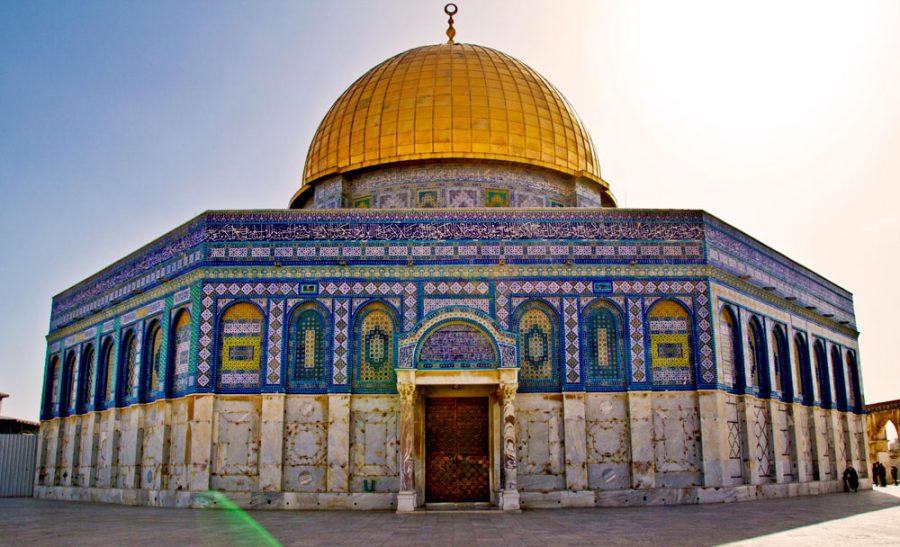Hear the voices of the third intifada
Complex tension between Israel and Palestine indicates the need to defend the oppressed.
October 28, 2015
Tensions remain high in Israel and the Palestinian Territories as violence brews in the streets of East Jerusalem and protests erupt in the neighborhoods of Ramallah. The resurgence of violence and riots begets the question, “Is this the start of the third intifada?”
RISING DEATH TOLL
In Arabic, intifada can mean “shuddering” or “tremor.” Intifada can also mean uprising, rebellion and the “shaking off” of the Israeli occupation of Gaza and the West Bank. According to an article by Salon, “The 1987 and 2000 intifadas claimed more than 5,000 Palestinian and Israeli lives, most of them civilians on both sides.”
An NBC News article claims, “So far, 23 Palestinians and four Israelis have been killed. Around 20 Israelis and more than 500 Palestinians have been injured.” The numbers of those who have been killed and injured continue to rise, as Democracy Now! recently stated at least 33 Palestinians, including eight children, have been killed while 1,600 Palestinians have been injured.
Two Palestinian men are shot after stabbing an Israeli man on a bus. Undercover Israel Defense Forces soldiers shoot and drag a Palestinian protester in Ramallah in the West Bank. Rabbi Arik Ascherman, president of Rabbis for Human Rights, is beaten by a Jewish extremist. A Jewish man is mistaken for an Arab, and attacked by Jewish youth. A Palestinian is shot dead as he attempts to stab an Israeli security guard at a border crossing. An Israeli airstrike kills a pregnant Palestinian woman and child. A Palestinian teenager throwing rocks is shot in the leg by an IDF soldier. A Palestinian worker is assaulted and beaten by IDF soldiers quelling a protest in Ramallah.
A DEEP HISTORY
As violence continues, we cannot forget the Israeli-Palestinian conflict is rooted in a history of deep political and historical complexity, and the uprising is a culmination of past injustices and retributions. The recent clashes between Palestinians and IDF forces at the al-Aqsa mosque in East Jerusalem indicates the sharp disagreements between both the Israeli and Palestinian narrative. While IDF forces keep fighting in the name of security, Palestinians still protest against the ousting and aggressive discrimination against their community.
Understanding the conflict requires nuanced knowledge of not only history of both Israelis and Palestinians, but recent struggles and conflicts between Israel and the Palestinian Territories. Hamas and other extremists consistently use violence and terrorism to incite fear and destruction in the territories. Israel continues its raids and airstrikes in Gaza, even after the recent Operation Protective Edge caused the death of more than 2,200 Palestinians, 500 of them children.
While the development of the Dahiya doctrine by the IDF is seen as a collective punishment of Palestinians in Gaza, the rocket attacks by Hamas are consistently condemned by Amnesty International. No side is immune to political manipulation, strong-arming or extremism.
HEARING THE OPPRESSED
All these events make one thing evident — justice, peace and reconciliation will never prevail until the voice of the oppressed is heard. Martin Luther King Jr. proclaimed, “A riot is the language of the unheard.” Just as Israel has the right to defend itself from terrorism, Palestine has the legal right to resist an illegal occupation. Intifada is a form of collective expression; an expression that can be deterred if the voices of the oppressed and the victims of injustice are heard.







